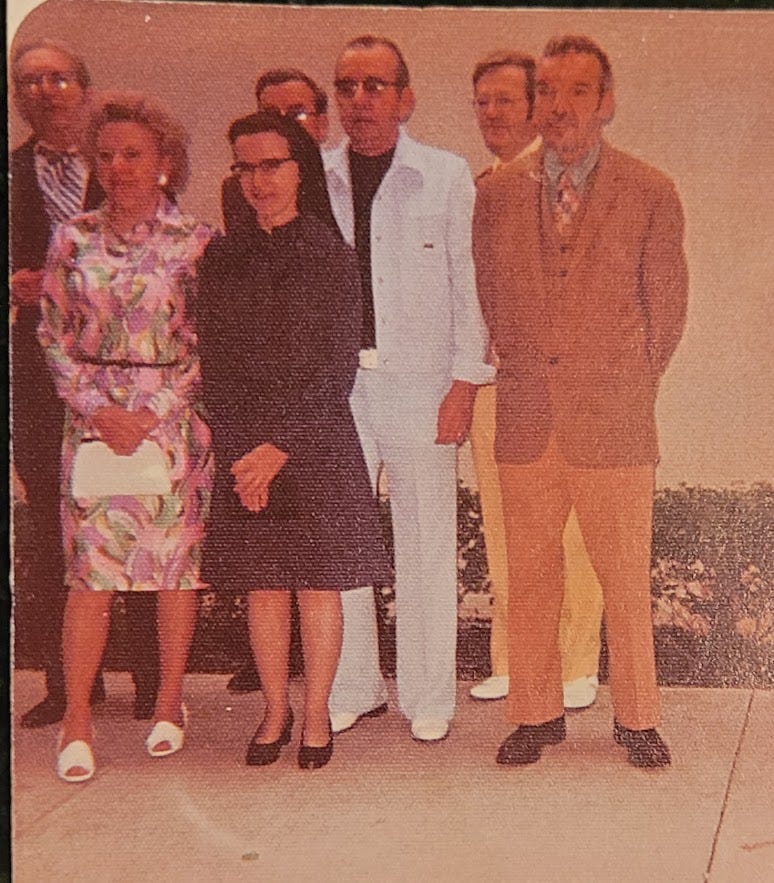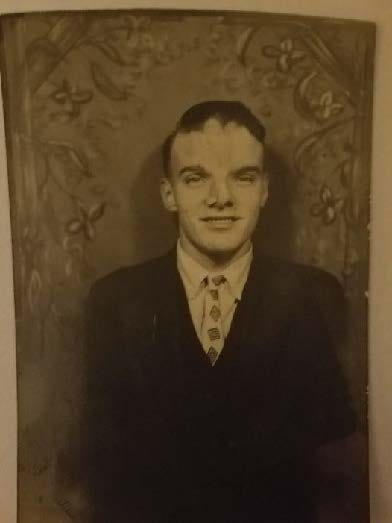Judge not, lest ye be judged
A personal, family story about the challenges of Developmental Disability, in Parts
It was early in the 1950s, and State of Wisconsin Health Department called Ray McBride at his office.
“Hello Mr. McBride, I am calling from the Department of Health.”
The veteran reporter from the Milwaukee Journal was used to receiving calls from public officials, but this one would soon take an unexpected turn.
“Are you aware that you have a brother?”
“I have several brothers,” the reporter said.
“But are you aware that you have a brother who is living in a State institution?”
“No,” McBride said.
“Yes, his name is Paul McBride. And he has been living with us since he was born, but he soon will turn 30 years old. And by state law, when he turns 30 years old, he no longer is required to live under state control. In fact, we are required to release him. Now, Mr. McBride, you are not required to do anything about this, so we are only calling to inform you of this, as his oldest sibling. You or your family can become involved in his life, or not, it is your choice. What would you like to do?”
McBride had to respond on the spot to the question. Certainly the news of this was in some ways a huge, life-changing surprise to the oldest child of a seven-person family. McBride, then in his early 40’s had three other brothers and two sisters. His father was still alive and would die in 1966.
McBride’s mother, Genevieve Gardner McBride, had died on February 27, 1924, a victim of maternal mortality, while delivering her seventh child. This was of course devastating news. Suddenly the father, John McBride, a high school teacher from Superior, Wisconsin, was a widower at 41 years old, and responsible for raising six children. When he got home, Ray McBride’s father told the family that not only the mother had died in childbirth at age 32, but the infant son had also died.

When Ray McBride heard in the 1950s that he had another younger brother, while it was a shock, he would later say that he had heard rumors about it “from the busybodies in Superior.” So some part of him was not totally surprised.
The state worker was waiting for an answer, but she did not have to wait for long.
“Of course I want to be involved in his life,” McBride said, perhaps not realizing all that that meant. And later when he told his wife, Marian (“Toni”) Dunne McBride, a fierce advocate for the underprivileged and civil rights, she was in fact even more strong in advocating that the Ray and Toni’s small family of three play an active role in Paul’s life.
***
So began a lifelong odyssey, a roller coaster of experiences with the developmentally disabled, a severely inadequate mental health system (Paul lived for 30 years at a “Home for the Feeble-Minded” in Chippewa Falls, WI). This safety net full of holes that would ill serve Paul McBride for his entire life, even if he had not been born in such adverse circumstances, maternal mortality. Paul was born over 100 years ago in 1924 and died in 2004. What happened to Paul in the early years of his life, and how the mental health system was structured for children like him is part of his story, and of stories for children like him.
Whether the result of his difficult early years, or for other reasons, Paul later suffered from alcoholism, homelessness, depression, diabetes, and more. Ironically, through all this he would be embraced warmly by an imperfect family that itself had its own set of dysfunctions, with his siblings also suffering from alcoholism, depression, family strife, and more.
But yet through it all, Paul was embraced from the moment of that phone call Ray took with love, and to the end of his life he would be welcomed back into his family, a family that includes this author (his nephew), to celebrate family gatherings, and to support him when he needed it.

Paul McBride was my Uncle and his lifelong affliction with developmental disabilities has long fascinated this author, the youngest son of Ray McBride. Perhaps that is also because my son also has developmental disabilities – autism. Or perhaps it is because this author studies health policy, and as I dove into this story, first as a personal journey, I learned astonishing details about how inadequate -- and sometimes unethical -- our health system long has been, for children and young adults like Paul McBride, in Wisconsin, which I also will explore here. As I dug into Paul’s story, I also took some turns into the dark history of eugenics, and how how policymakers across the political spectrum encouraged some now widely debunked policies.
Though this is a highly personal story, the story is illustrative of some difficult stories we need to tell about the history of mental health policy in the U.S. Though Paul McBride was born over 100 years ago, and we have made much progress in how we treat people with disabilities, the US still struggles to have well-functioning systems to help the developmentally disabled, with inadequate resources for children with disabilities. Thus, while Paul McBride clearly would be treated differently today, we still struggle to treat our developmentally disabled and their families.
Part II of the story explores Paul’s early life.
____________
The author is Timothy McBride, Bernard Becker professor, School of Public Health, Washington University in St. Louis. Views are my own.



This was beautifully written, incredibly sad, but hopeful ❤️